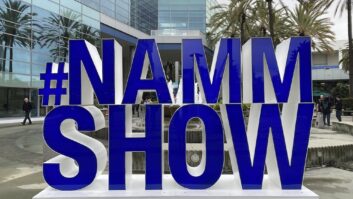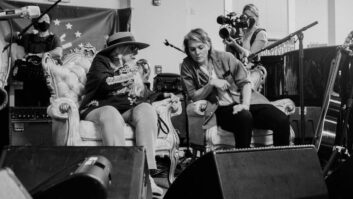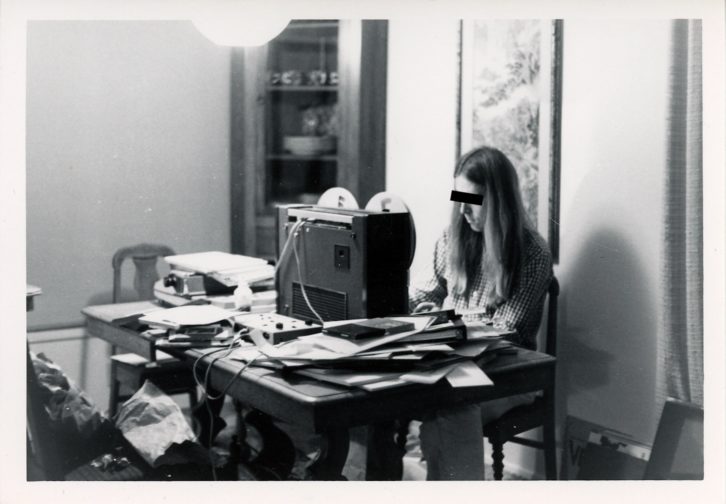
Discover the secret history of Trade Mark of Quality, the first bootleg record label, which covertly released dozens of illegal albums by music’s biggest names throughout the first half of the 1970s. In Part 3, we discover how TMQ changed with the times, fooled Led Zeppelin’s notorious manager and ultimately why the illegal label had to shut down for good. Don’t miss Part 1: The First Bootleg Record and Part 2: The Secret TMQ studio!
TMQ bootlegs began appearing on indie record store shelves in the second-half of 1969, and became an underground hit so quickly that by the spring of 1970, The Who appropriated their rubber-stamp aesthetic for the packaging of its classic—and official—Live At Leeds album. Even then, however, TMQ was starting to leave that look behind, releasing records with colored vinyl and better packaging. In 1973, commercial illustrator William Stout—who would go on to create covers for Rhino and other legitimate labels in the decades that followed—was brought on to create witty covers that became synonymous with TMQ, starting with another Stones bootleg, All Meat Music. By that point, the bootleggers had been using offset-printed inserts wrapped around generic sleeves for years. “I was there when Led Zeppelin Live On Blueberry Hill came back from the plant,” Harold Sherrick, co-author of the TMQ tell-all A Pig’s Tale, recalls. “We had the cover and we inserted that in there; that was really a lot of fun.”
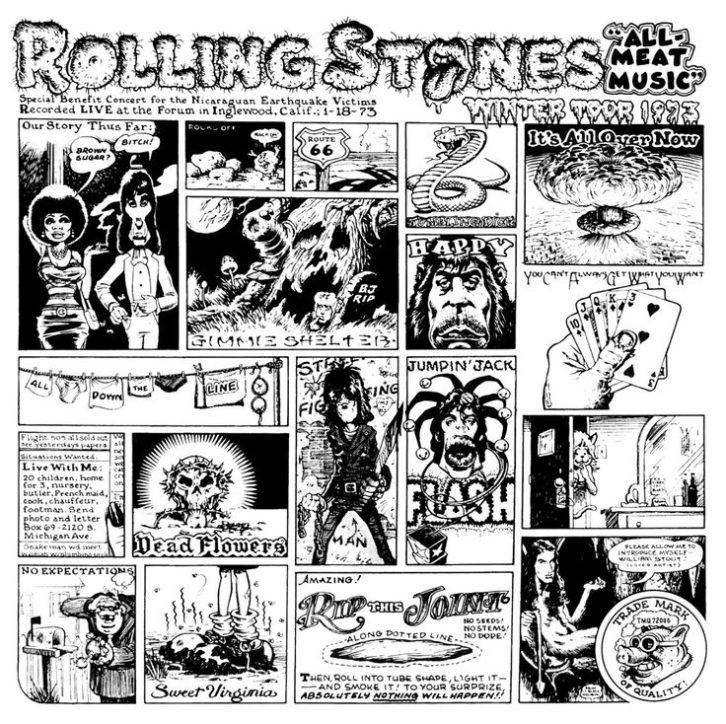
As time went on, the ambitions of TMQ partners Carl and Pigman ambitions grew, but so did their chances of getting caught, so they tried to find new ways to covertly record shows. Today considered by rock historians to be a crucial document of Led Zeppelin in its prime, Live On Blueberry Hill was a perfect example, says Sherrick: “I’ll tell you a story that’s not in the book; it slipped our minds and we kind of regret that now. I saw a British documentary from 1971 on bootleg records, and they interviewed Peter Grant, Zeppelin’s manager—and he mentioned our bootleg and that it was done at The Forum in Los Angeles. The guy asked him how it was recorded and he said, ‘Well, I think they used radio transmitters for that one.’ And we laughed because Pigman’s idea actually was to record that with transmitters! They were going to bribe the stagehands so they could bug the stage, tap the sound equipment and record the show. The plan was in effect until they realized The Forum was directly in the flight path going in and out of L.A. International Airport. The radio equipment would interfere with the control towers—the FAA would be coming down, trying to trace that back—so they just did it the usual way with the shotgun mic, sitting in the first couple of rows.”
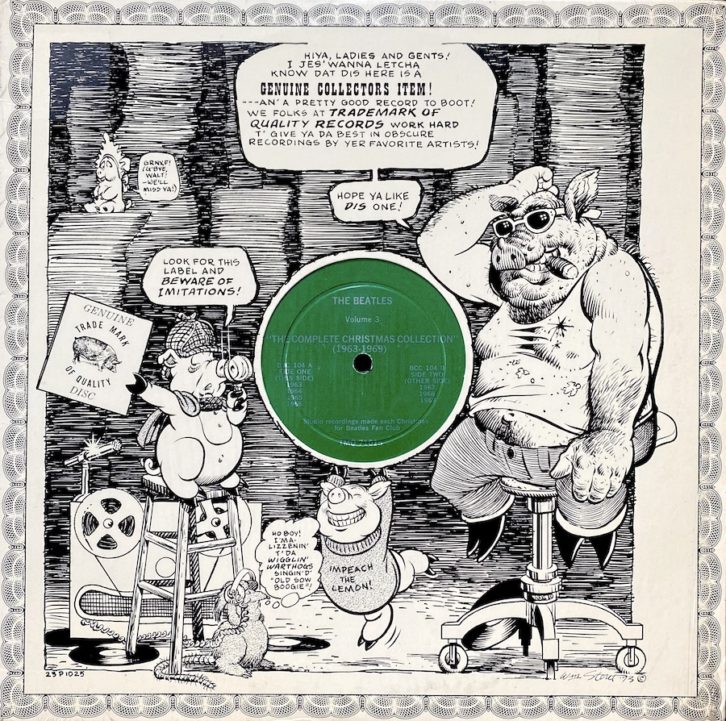
TMQ kept rolling out releases throughout the first half of the 1970s, but as an all-cash, illegal business, there were no invoices, no records of how many albums were pressed and no real gameplan. While that helped keep The Man off Pigman’s tail at the time, 50 years later, it made life difficult for the A Pig’s Tale team when they assembled their book’s key feature, an illustrated, definitive discography that separates fact from fiction and faux represses from the real records. “The two most difficult titles to research also happened to be the two worst-selling albums from the original TMQ days,” says their researcher, Steve Talia. “They were Donovan The Reedy River and the Blood, Sweat And Tears BS&T 5 album. By a miracle, there were two members on the Steve Hoffman online forum who saved me when it came to digging up information on the both of them.”
Carl and Pigman went their separate ways in 1971 and each continued to use the TMQ name; in the meantime, competitors started springing up…and getting caught. “There was Rubber Dubber and Wizardo, and Rubber Dubber didn’t last long at all; he got nailed really fast,” says Sherrick. “He did an interview with somebody, revealed too much and the Feds went right to his house and raided his place. Pigman just got out when it was the right time, because when you’re getting eyeballed by the Feds, you get tired of that. He was aware of it, and he was real smart about things, you know? You have to be when you’re at the top, doing something like that; you have to use common sense and you can’t let your ego run away with you. Pigman kept his cool and left when he did, and said it was a nice run while it lasted.”
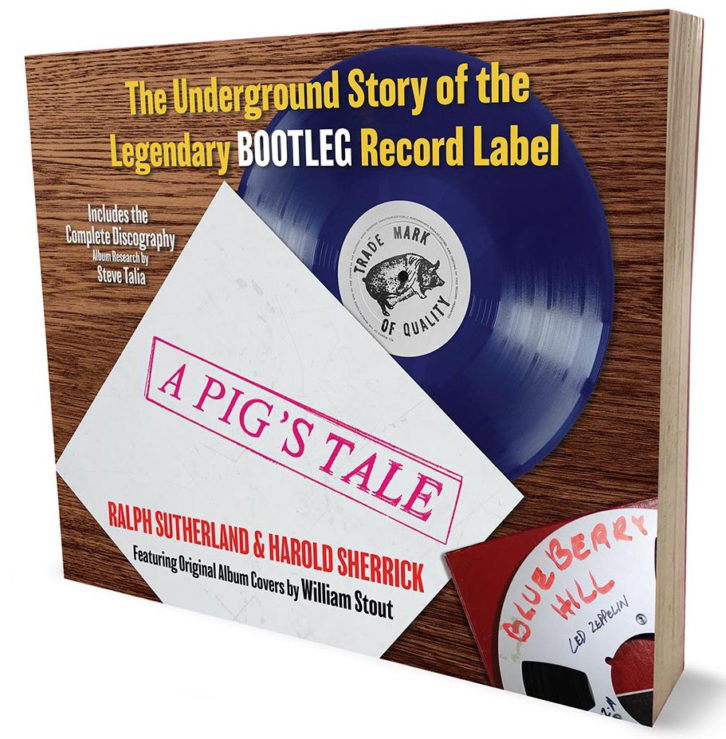 Today, the viral spread of unofficial music over the internet is a key artist career tool, and a soccer mom posting phone clips from a Bon Jovi concert doesn’t have to fear a visit from the Feds; perhaps that’s just as well. Time has consigned TMQ to the realm of memory, and now literally to the history books as well—all of which can’t help but make Sherrick a little wistful: “For me as a high school kid, it was so much fun, one of the greatest times of my life. It was another time and another place—because, boy, it is nothing like that now.”
Today, the viral spread of unofficial music over the internet is a key artist career tool, and a soccer mom posting phone clips from a Bon Jovi concert doesn’t have to fear a visit from the Feds; perhaps that’s just as well. Time has consigned TMQ to the realm of memory, and now literally to the history books as well—all of which can’t help but make Sherrick a little wistful: “For me as a high school kid, it was so much fun, one of the greatest times of my life. It was another time and another place—because, boy, it is nothing like that now.”
A Pig’s Tale is available from Genius Books and tmqapigstale.com.



